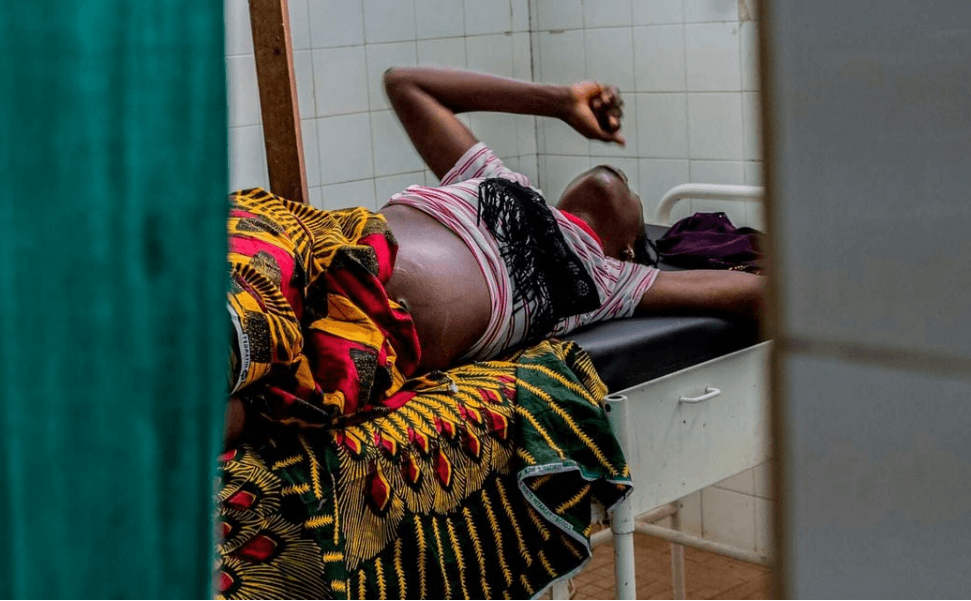
Unsafe abortions, driven by restrictive laws and pervasive stigma, continue to claim lives and destroy futures. In Kenya, recent statistics from the Kenya Obstetrical and Gynecological Society reveal that 465,000 abortions occur annually, with the majority being unsafe. Further estimates indicate that at least 2,600 women die each year due to complications from unsafe abortions, translating to eight women losing their lives daily. “Another 21,000 women are hospitalised annually due to complications arising from unsafe abortions,” says KOGS, a national advocate for sexual and reproductive health rights.
A few hours after leaving a herbalist’s house, Mercy (not her name) started experiencing strong abdominal pains. A sudden, hot rush of a warm liquid running down her inner thighs startled her. To her shock, she noticed blood flow.
The 16-year-old felt a little relieved. Hours earlier, she had been a guest of the herbalist, and she knew for certain these were after-effects of the unsafe abortion procedure she had undergone in the company of a friend at her rural home in Bungoma.
Her visit to procure unsafe abortion had been successful, so she had thought. “You will spot light blood, nothing much to worry about,” the medicine woman had assured her. Mercy immediately put on a sanitary towel and retired to bed hoping to wake up feeling much better the following day.
“I was carrying my stepfather’s child. Allowing my mother to know about it would have subjected me to the trauma of being an outcast. The only solution was to terminate the pregnancy,” Mercy told Healthy Nation.
The teenager also shared that the misconceptions about seeking safe abortion services in hospitals, including being arrested for ending life, did not allow her to visit a health facility.
During the interview, Mercy tearfully recalled the horrifying ordeal of being defiled by her stepfather while her mother was away attending a night vigil. She spoke with pain and sorrow, recounting the events of the fateful day in June last year that changed her life forever.
Age 16, Mercy had just put her younger brother to bed and stepped out of the house to buy milk at a nearby kiosk. When she returned, her stepfather, who was visibly tipsy, had transferred her sleeping brother to his own bedroom. He then asked Mercy to check on the boy. “When I entered his bedroom, my stepfather, who had been following me, locked the door and defiled me,” Mercy said, her voice shaking with emotion. She added that he had threatened to kill her if she ever told anyone about what had happened.
Though terrified and deeply traumatised, Mercy decided to keep the events of that night a secret. However, anxiety began to creep in when her periods failed to come. Overwhelmed with fear, she took a pregnancy test, which confirmed her worst fears—she was pregnant.
Mercy could not come to terms with the reality of carrying her stepfather’s child. Desperate and confused, she confided in one of her close friends, a neighbour, who suggested they could seek help from a village herbalist. The herbalist, her friend said, would charge Sh800 for her services.
The following day, Mercy visited the herbalist. The elderly woman asked about the gestation stage and then proceeded to prepare a concoction. “I was made to drink one cup of the concoction. The woman then asked me to lie on a mat facing up and inserted two small pieces of leaves into my cervix with her bare hands,” Mercy recalled. The herbalist assured her that the leaves would exit her body once she started bleeding.
Initially, the bleeding was light, but it became heavier over time. That same night, one of the leaves came out mid-flow, but the other remained lodged inside her cervix. Mercy grew increasingly worried. To make matters worse, her vagina became extremely itchy. The next morning, she returned to the herbalist, who dismissed her concerns, claiming that the remaining leaf would eventually be discharged by the blood flow.
Two weeks later, the leaf was still stuck inside her cervix, and Mercy’s condition had worsened. She experienced severe lower abdominal pain, persistent bleeding, and other worrying symptoms. “The bleeding did not stop. Instead, my skin and eyes turned pale. I would also experience frequent headaches and dizziness,” Mercy said. Fearing for her life, she approached a trainer affiliated with the Kisumu Medical and Education Trust, a non-governmental organisation running reproductive health interventions in several counties, who immediately referred her to their health facility for treatment.
At the facility, doctors performed a scan that revealed that the remaining leaf had caused a serious infection. “The scan also revealed that the abortion procedure was not complete,” Mercy said. She was immediately placed on medication to complete the procedure. After the procedure, Mercy continued to bleed for a few more days, during which a decayed piece of the leaf was discharged. However, this time, the bleeding was accompanied by pus with a foul odour. “The doctors informed me that I had developed an infection,” Mercy said. She is still undergoing treatment and remains on medication to address the complications.
Mercy’s case is among the 73 million induced abortions that occur globally every year, according to a World Health Organization (WHO) report.
The article continues to discuss the consequences of the re-imposition of the Global Gag Rule by Trump, something that has occurred every time there has been a Republican Party president in the White House, i.e. mostly every other four years. The consequences are well known to those who are aware of the history.
SOURCE: Nation: Africa: Kenya, by Angeline Ochieng, 10 February 2025. PHOTO: Pool.



